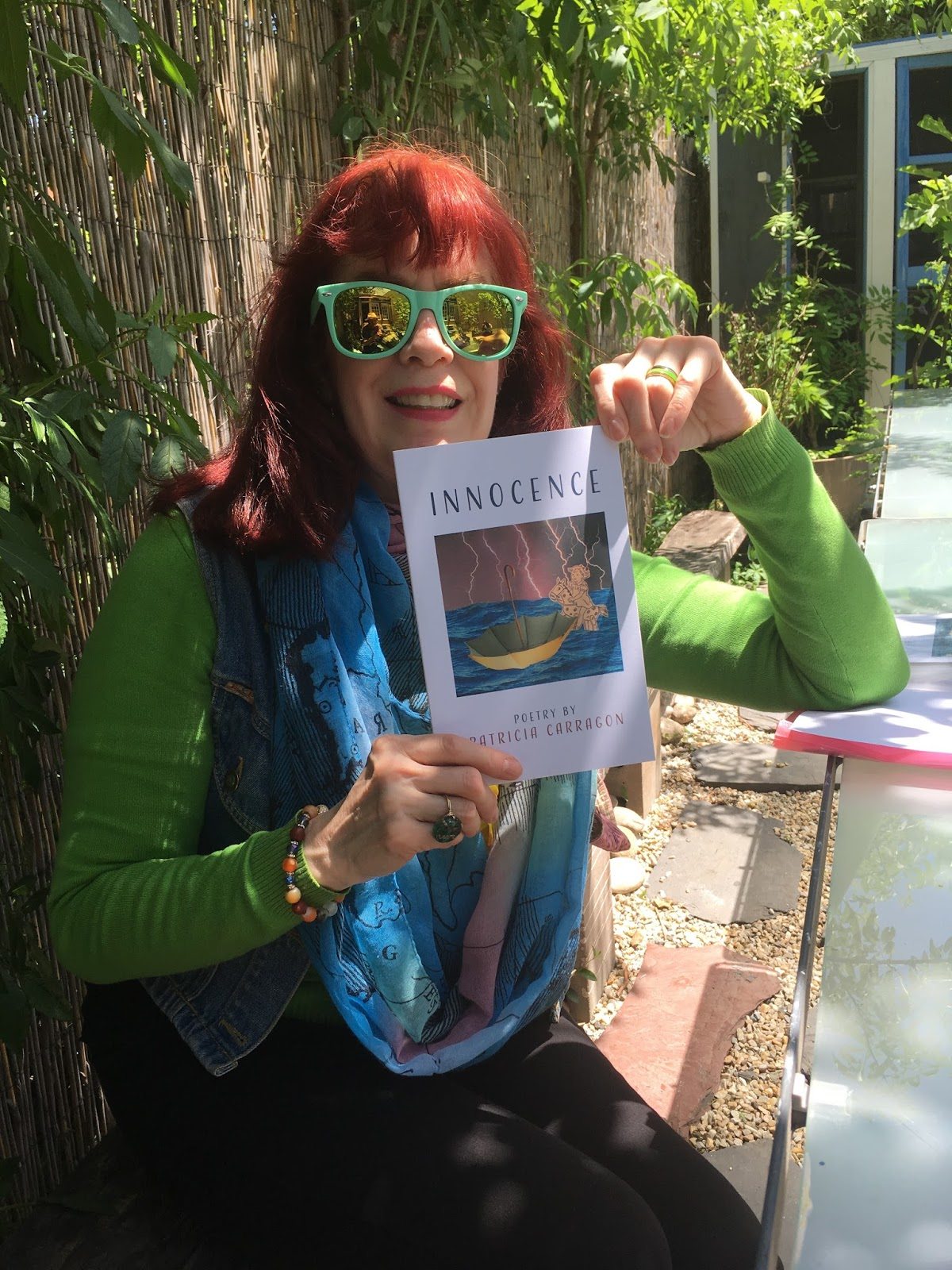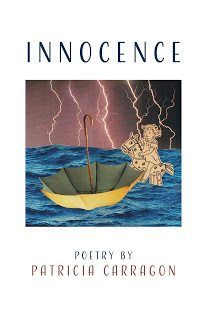BKLYNER: Patricia Carragon on Innocence & Bath Beach


Patricia Carragon is a poet from Bath Beach who loves cupcakes, cats, and haiku, and as a child wrote and illustrated a make-believe newspaper. It was her witty pitches for her Brunch ‘n Fun social activities at St. Bartholomew’s Church in Manhattan, though, that led to a life of poetry.
Patricia is also the host of the Brownstone Poets reading series and edits its annual anthology. Her book of poetry, titled Innocence has just been published in paperback, and she will be doing a reading at the Bookmark Shoppe in Bay Ridge on Tuesday, June 6 at 7 p.m.
Can you tell us about what prompted you to write ‘Innocence’? Is it autobiographical?
Several of the poems in ‘Innocence’ are based on personal experience—the expectations that withered over the years. No child or adult should be the victim of bullying, ridicule, and loneliness. But it is also about the triumph of the human spirit over hardship. In spite of what has happened to me, I still retain innocence for agape love, peace of mind, sunshine, and the rainbow after the storm.

What would you like readers to know about ‘Innocence’ before they pick it up?
‘Innocence’ is about how reality burns the “cookie-cutter” expectations of childhood and the “success stories” of adulthood. In several poems, reality is the extension of unescapable nightmares—the ones that hit you in the gut. But reality is also the source for inspiration, humor, hope, dignity, and joy. My words understand the complexities of struggle—words that many readers could relate to.
Your first book of poetry published in 2005. What did it feel like to publish your first collection, and how has your work changed since that first book?
Holding my first book, ‘Journey to the Center of My Mind’ (Rogue Scholars Press) brought joy and satisfaction. I was a newcomer to the literary world and was gaining acceptance among peers. My writing style has evolved over the years. I’ve learned to tighten my sentences and make the flow less jarring. Seems as though my style changes every five years. In ‘Innocence,’ I’ve included two re-edited poems, “Humoresque” and “Dead Flower,” from my first book.
What is your writing process for poetry and short fiction — Do you sit down to write everyday or when the mood strikes?
My process for writing is whenever the muse strikes. It could happen anywhere—on the subway or before I go to bed. If I don’t write down my thoughts immediately, my ‘trains of thought’ will travel to some undisclosed destination. LOL!
What are your greatest struggles as an artist? What about your greatest moment of success?
My greatest struggles are getting my writing in the best shape possible for publication and receiving rejection letters. I’m constantly editing, in search for perfection. I read my work at workshops and readings. I value the feedback from other writers. This is necessary for fine-tuning my work. But it’s tough when those notorious rejection letters from literary journals hit my inbox. It’s part of the process of being a writer—you win one day and lose the next.
My greatest moment of success is when I see my work reach fruition. It could be in its completion, publication, or appreciation.
When (and how) did you know that you wanted to be a writer? Is there a specific moment that you started calling yourself a writer?
As a child, I created and illustrated a club newspaper. However, I wasn’t encouraged to write until the early ’90s when I wrote witty pitches for my ‘Brunch ’n Fun’ social activities at St. Bartholomew’s Church. One friend encouraged me to explore my literary muse. Another saw poetic resonance in my eulogy for Jacqueline Kennedy Onassis.
Since you have an upcoming reading, can you tell us what it feels like to read your work to a live audience?
I like to come prepared. If the feature is ten or twenty minutes long, I would time myself accordingly—usually reading for about a few minutes under my time. I’d rather give those minutes to the open readers. I read a variety of work and use different moods, whether it be prose, poetry, haiku, flash fiction, et al. I want to engage my audience. No “poet voice,” please!
Tell us about your history with Bensonhurst/Bath Beach — when did you move there and why?
I moved here on June 30, 2014. I needed to be closer to my Brownstone Poets reading series in Brooklyn Heights and my Brooklynite friends. Flushing was too far and Astoria was getting too pricy. You can’t beat the rents in this section of Brooklyn!
What do you love most about the neighborhood? What do you wish you could change?
I love the diversity of the neighborhood. Where can you find cannoli, borsht, dim sum, falafel, rice and beans, and gyros within walking distance? However, we do need more Internet cafés.
Does living in Bensonhurst/Bath Beach affect your work as an artist?
The everyday life in the neighborhood is poetry in motion. Poetry and art are everywhere. A haiku could happen while standing on the 18th Avenue D platform. Simple activities inspire, as well as the backyards, sidewalks, subways, trees, sky, and local cats. I always walk around with a notebook and iPhone.
What is your favorite neighborhood spot?
Shore Promenade. Now with weather getting warmer, a morning schlep to the Verrazano-Narrows Bridge would be as invigorating as going to the gym. Great for photography as well.
You can hear her read from the new collection, Innocence, on Tuesday, June 6 at 7pm, at the Bookmark Shoppe in Bay Ridge.